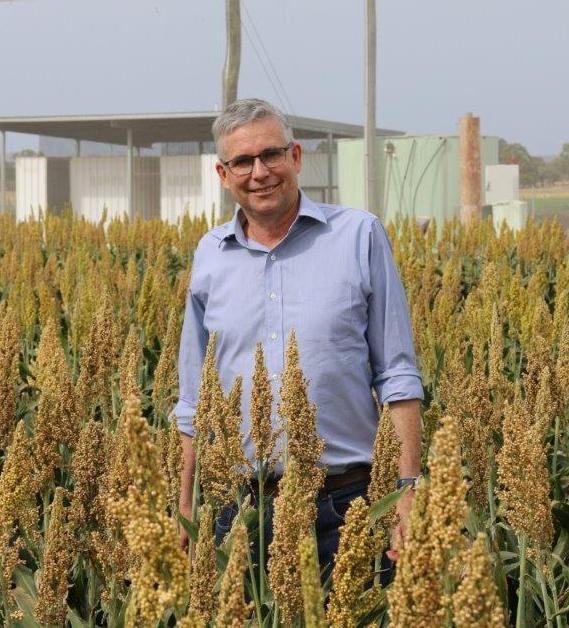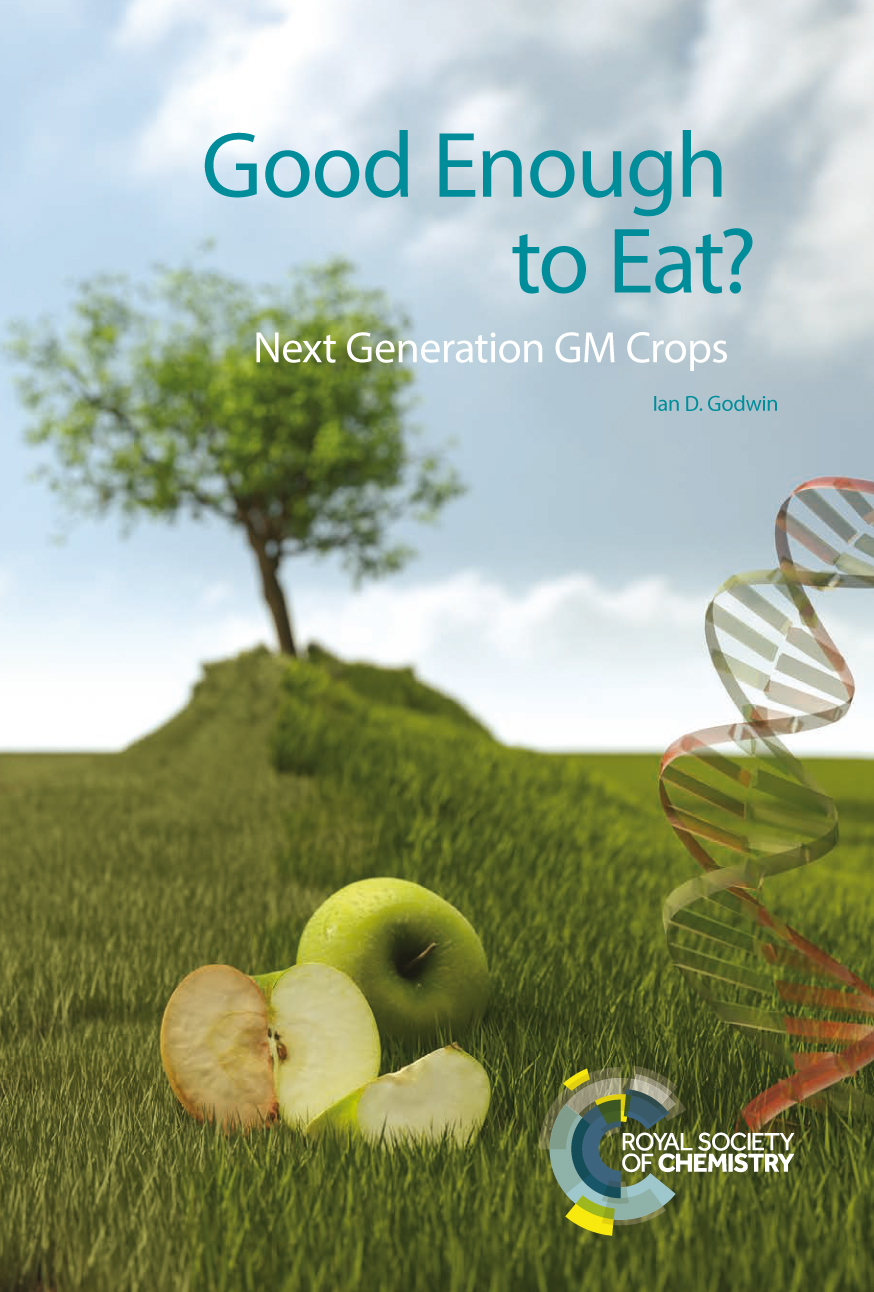So long as you have food in your mouth, you have solved all questions for the time being. So begins Good Enough to Eat?, which challenges Kafka’s culinary sentiments and proceeds to unravel our complex and deeply personal relationship with food. Good Enough to Eat? charts the history of Genetically Modified (GM) foods from the laboratory to the global dinner plate. Equally informative and entertaining, Professor Godwin chronicles the social, political and philosophical arguments for and against GM crops, and the science and knowledge behind the battle for global food security and sustainability.
GM crops are currently grown on almost 200 million hectares in 25 different countries. This presentation by Professor Ian Godwin will focus on the benefits and risks associated with these crops, and outline some of the exciting new breeding technologies.
 Professor Ian Goodwin
Professor Ian Goodwin
Director, Centre for Crop Science, Queensland Alliance for Agriculture and Food Innovation (QAAFI), The University of Queensland
Ian is the Director of the Centre for Crop Science at the QAAFI and author of Good Enough to Eat? As a scientist, Ian is at the forefront of gene editing crops, such as sorghum, which has been edited for a 15 percent higher protein content. Ian has over 30 years’ experience in plant biotechnology research and leads research in the use of biotechnological tools for crop improvement, with emphasis on the sustainable production of grain crops. Ian is passionate about the public communication of science, and the future of agriculture in a changing climate.
Ian has over 20 years experience in plant biotechnology research, and cut his teeth on plant genetic engineering at Birmingham University in the UK in the 1980s. Since 1990, he has held an academic position in plant molecular genetics at the University of Queensland. His research involves the use of biotechnological tools for crop improvement, with emphasis on the sustainable production of grain crops. Major focus is on the improvement of crops for food, feed and bio-industrial end-uses, including bio-fuels and bio-materials. Research projects include international collaborations with a focus on food security and plant genetic resource conservation with collaborators in the United States, India, Africa and Pacific Island countries. He is passionate about the public communication of science, and has spoken at many public events on genetics, GM plants and food, animal cloning, and the future of agriculture in a changing climate. In 2003 he was an ABC Science Media Fellow, and has appeared on ABC radio national and local radio on numerous occasions.
 Prof Godwin is the author of Good Enough to Eat?, a new book about new genetic plant and animal breeding technologies. It charts the history of genetically modified foods from the laboratory to the global dinner plate, and outlines the huge potential of new gene editing technologies, such as CRISPR.
Prof Godwin is the author of Good Enough to Eat?, a new book about new genetic plant and animal breeding technologies. It charts the history of genetically modified foods from the laboratory to the global dinner plate, and outlines the huge potential of new gene editing technologies, such as CRISPR.
So long as you have food in your mouth, you have solved all questions for the time being. So begins Good Enough to Eat?, which challenges Kafka's culinary sentiments and proceeds to unravel our complex and deeply personal relationship with food.
Including interviews from both sides of the (farmyard) fence; from biologists to farmers and nutritionists to activists, Good Enough to Eat? charts the history of GM foods from the laboratory to the global dinner plate. Equally informative and entertaining, Godwin chronicles the social, political and philosophical arguments for and against GM crops, and the science and knowledge behind the battle for global food security and sustainability.
How are genetically modified (GM) crops created and why? How will crops evolve in future with scientists using new gene editing tools? Ian Godwin, a professor in plant molecular genetics, explores these questions in a fun and accessible style in Good Enough to Eat. The book delves into the social, political, and philosophical arguments for and against GM crops as well as the science behind them and puts this knowledge into the context of global food security and sustainability. Godwin interviews biologists and farmers, nutritionists and activists along the way.
